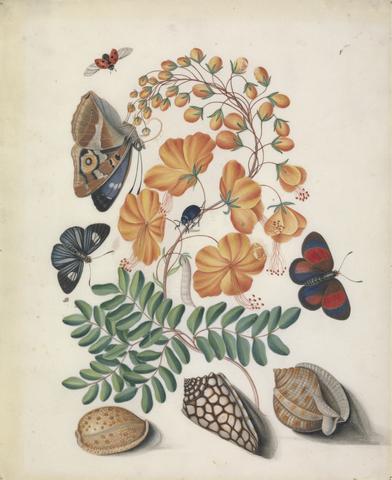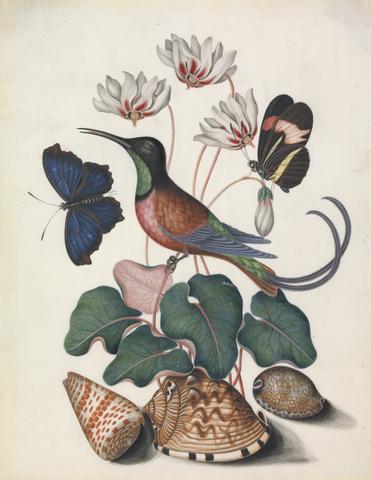Search Constraints
You searched for:
Period 18th century
Remove constraint Period: 18th centuryWork Type botanical illustration
Remove constraint Work Type: botanical illustrationSubject Terms Nymphalidae -- Pictorial works.
Remove constraint Subject Terms: Nymphalidae -- Pictorial works.Search Results

1
- Caesalpinoid legume, possibly a species of Caesalpinia L.; Blackburn's Earth Boring Beetle (Geotrupes blackburnii), Seven-Spotted Ladybird Beetle (Coccinella septumpunctata), Purple Emperor (Apatura iris), (Lepidoptera Hesperiidae) and (Nymphalidae cf. Haematera); shells, from left: (Cypraea ocellata L. 1758), (Conus marmoreus L. 1758), and (Semicassis granulate Born, 1778), from the natural history cabinet of Anna Blackburne
- circa 1768

2
- Crimson topaz hummingbird (Topaza pella), male, with Cyclamen (cf. Cyclamen L.) and (Lepidoptera Nymphalidae), open, and Red Postman (Heliconius erato phyllis), closed; shells, from left: (Conus tessulatus Born, 1778), (cf. Cypraecassis testiculus L. 1758), and (cf. Cypraea histrio Gmelin, 1791), from the natural history cabinet of Anna Blackburne
- circa 1768